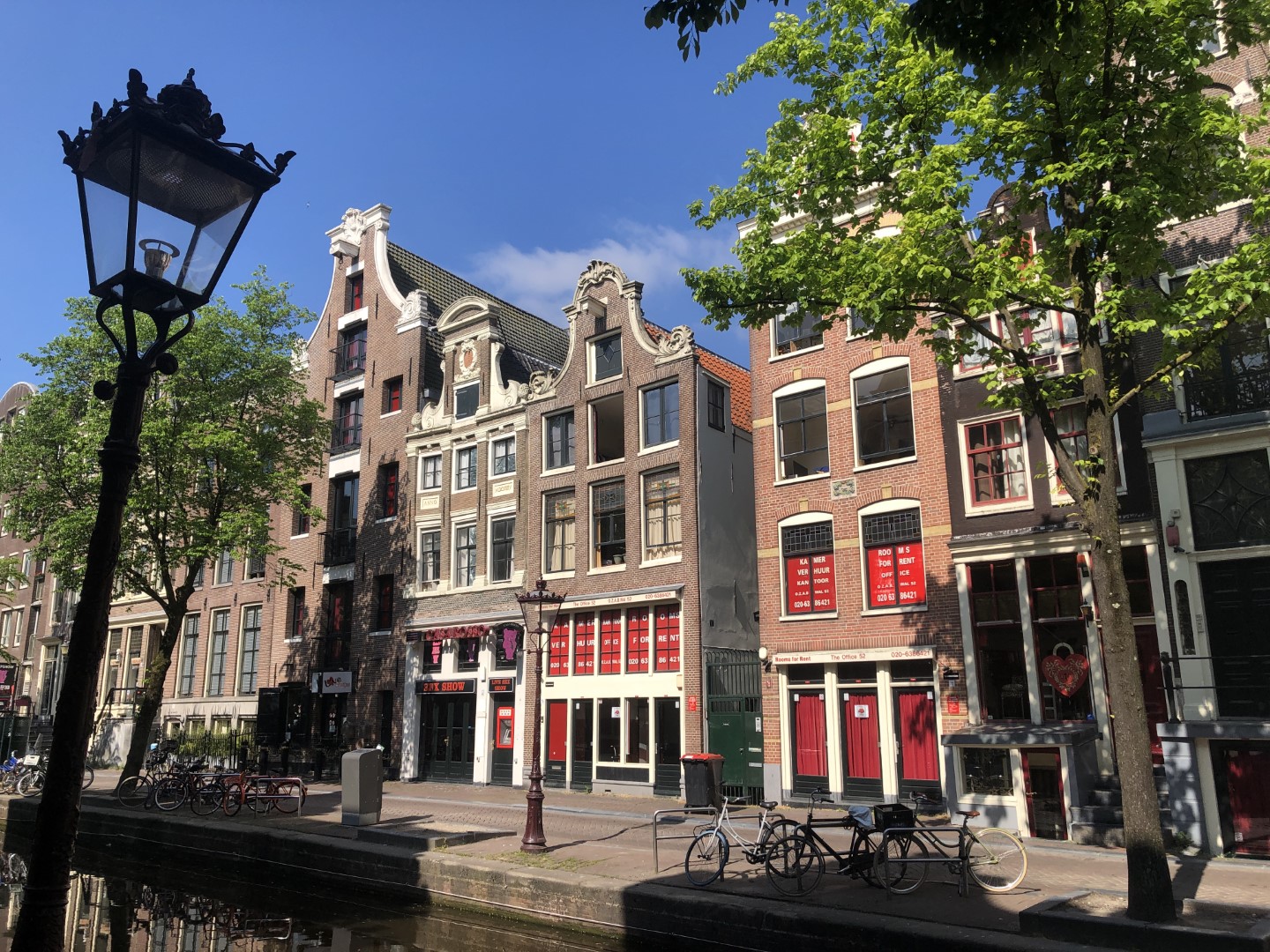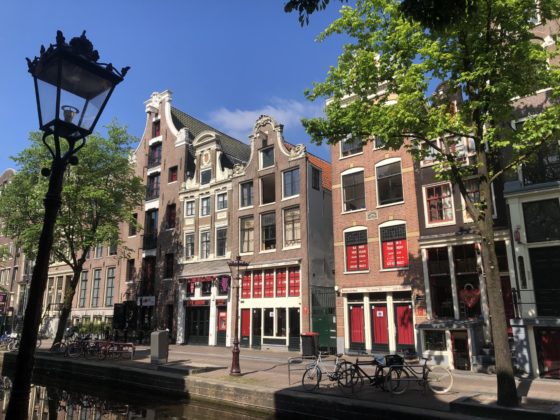On International Sex Workers Day, Amsterdam’s sex workers have little to celebrate


Henna X travelled from Amsterdam to Rotterdam last week to have an ‘O’ tattooed on her arm. She was just one of the city’s sex workers who headed to an undisclosed location to have part of Article 23 of the Universal Declaration of Human Rights imprinted forever on her body.
With large gatherings banned this International Sex Workers Day due to coronavirus restrictions, the tattoo is itself a sort of protest. The ‘O’ is part of the word ‘protection’, which sex workers say they have little of these days.
‘I did it to draw attention to our situation,’ says Henna X. ‘Our work is not allowed, our income is zero, and that’s not a democratic decision. Masseuses can massage people, but if I give someone a happy ending, it’s criminal. It doesn’t make sense.’
Prostitution is legal in the Netherlands. But while most contact workers—including hairdressers, manicurists and masseurs—went back to work May 11, sex workers are not allowed to resume working until at least September 1. That means six months of living, for the lucky ones, on government subsidies that sex worker advocates say just isn’t enough.
Rent
‘What’s devastating is to see how my community is suffering,’ says Yvette Luhrs, an activist with Amsterdam’s Prostitute Information Centre who works in pornography and online sex. ‘I have good friends who can’t pay rent, friends who have been saving for a Master’s degree who now can’t attend university and friends buying groceries for other friends who can’t afford it. People don’t know what to do.’
Fitness clubs, saunas, spas, arcades and casinos were also slated to remain closed until September, but government officials announced last week that they could likely reopen July 1. For Henna X and Luhrs, the coronavirus restrictions that they say remain only for sex workers brings into the open a problem that’s been simmering beneath the surface for years.
‘There’s a stigma against sex workers, even though prostitution is legal,’ says Luhrs ‘It’s not a tolerant country when it comes to sex work, and it’s becoming less tolerant now. I don’t know why we’re suddenly excluded from the group of contact workers.’
Masks and gloves
In an attempt to rectify that situation, sex worker advocates, including the Red Light District’s union for window prostitutes, Red Light United, last month petitioned the government to let them resume work under a strict protocol, including wearing masks and gloves, prohibiting kissing and oral sex and having sex only in positions facing away from each other.
Other proposals include asking customers if they’ve had COVID 19 symptoms and taking their temperatures before rendering services.
For now, opening day for sex workers remains September 1. A spokesperson for the Ministry of Justice says the government is following a ‘roadmap’ of gradual re-openings made with input from health and other professionals. ‘We were advised to wait,’ says the spokesperson regarding the resumption of sex work, ‘although ultimately, it’s a political decision taken by the ministers.’
Moving on
But Henna X can’t wait. She moved to Amsterdam from Finland seven months ago to work in the safe, tight-knit community of the Red Light District’s window workers. ‘With the virus, that plan has gone out the window, no pun intended,’ she says.
So she’ll move to Germany for now where sex work is expected to resume this summer and work as an escort from a rented apartment until the Red Light District reopens. ‘The €999 I’m getting now each month from the government I could make in two nights before the virus. My savings won’t last six months, and I’ve lost faith they’ll even let us open in September.’
Moving from the windows to private escort work is just one of the things advocates say is putting sex workers at risk. Luhrs says with online advertising for sex work shut down and increasing raids on independent sex workers, she fears that sex work will go underground, where it’s unregulated.
Underground
‘When there’s no other work, people turn to sex work,’ she says. ‘We’re heading for another economic crisis, and I don’t see a reason why sex workers won’t turn back to the streets. If the crisis continues, people will find other ways to make money.’
For Henna X, even more worrying than the financials is what she sees as a threat to democracy. ‘People don’t like our work and now is an opportunity to get rid of it,’ she says. ‘Today it’s sex workers, but other groups could be next. It’s a slippery slope.’
Thank you for donating to DutchNews.nl.
We could not provide the Dutch News service, and keep it free of charge, without the generous support of our readers. Your donations allow us to report on issues you tell us matter, and provide you with a summary of the most important Dutch news each day.
Make a donation